Patrolling is the bread and butter of the infantry soldier. There may beother armies who patrol as much as do the Australians, but none that domore of it. There are just a few types of patrol, each has its own role inserving and protecting the parent body. Those in Korea were along theselines: The recce patrol which may be but three men then up to a patrol instrength of company size. Basically the job was the same and that was tolocate the enemy and or find out their movements. Detect any threat fromthem for possible attacks, or their locations of strength. Usuallydangerous. |
|
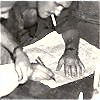
| Patrol briefing in C.P.
The sharp end, but with support. | But not for vaudeville | 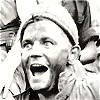
|
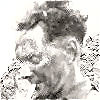
| Night patrol prepares
Hill 355 Area, '53. | Patient at Canadian Hospital, May 53. | 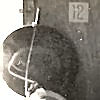
|
Ambush patrols which were of any size, depending on the circumstances. Thenitty gritty of these was to position your group in an area into which theenemy were likely stumble upon you with disastrous results for them. Theydidn't always work out like that, but many did. Sometimes we would use asmall group as a lure, making too much noise or allowing themselves to bediscreetly seen by the enemy and bolting from their pursuit. The escaperoute led of course right into the main ambush party, with dire resultsfor them hopefully. Not always of course. |
|
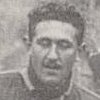
| Ambush Patrol, May '53.
Chinese were waiting
| He never came home | 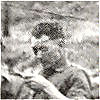
|
Fighting patrols whose sole job was to locate and come to grips with theenemy. This had several reasons for being, mainly to gain control of anarea and keep them from doing the same thing. Hopefully to pick up aprisoner if possible as a bonus, for interrogation purposes. With the Chinese it also served the important role of stopping any sneaky secretbuild ups in a hidden area from which they could launch a surprise attackwhen least expected. Many UN positions, less actively patrolled than by RAR, were lost to the Chinese in this fashion. Sometimes resulting in a complete route of a large unit. It was not uncommon for oposing fighters to bump each other by accident, the endresult was anyone's guess. |
|
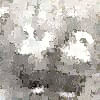
| Before a fighting patrol
Last smoke and brew. | Prior to leaving
Not superstitious, we. | 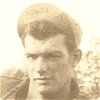
|
Patrolling was regularly done behind our lines, as well. As much for maintaining a presence as for actually bringing down guerilla snipers In the line, Snatch patrols were sometimes used, these would normally be of modest sizeperhaps 16 men who set out for known outposts or watering places. Theirrole was to unexpectedly drop on the smaller group with the intention ofsnatching a healthy prisoner, with the least possible fuss so as to escapewithout getting caught. Raiding patrols were used at times, maybe a platoon or even a company.Theirs was almost an attack but without the intention of taking andholding territory but rather unsettle the enemy and destroy bunkers. Onceagain hoping for an unwilling guest to take back home. |
|
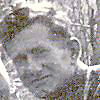
| Boiling the billy. 1953
An old Australian bush custom becomes an important social event, on the line. | Crashed out during Guerilla Hunt. '52.
Good job to be good at | 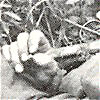
|
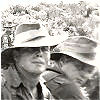
| On the move again '52.
But not anxious about it this time. | Sniper hunt 53.
Taking a break. | 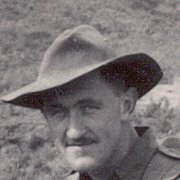
|











